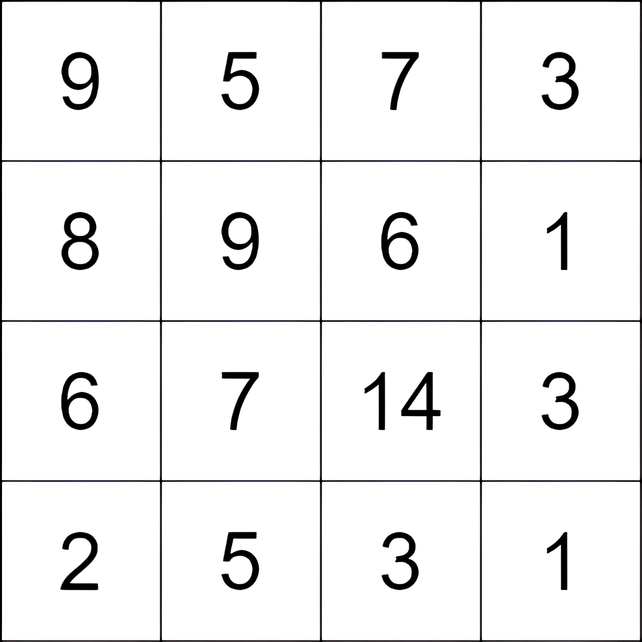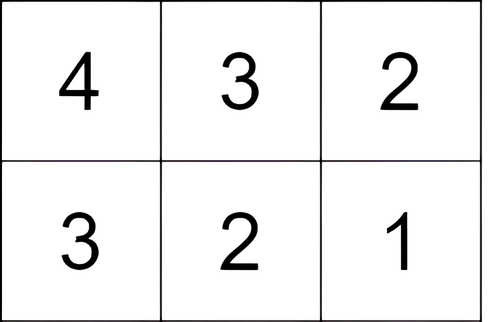3148. Maximum Difference Score in a Grid
Description
You are given an m x n matrix grid consisting of positive integers. You can move from a cell in the matrix to any other cell that is either to the bottom or to the right (not necessarily adjacent). The score of a move from a cell with the value c1 to a cell with the value c2 is c2 - c1.
You can start at any cell, and you have to make at least one move.
Return the maximum total score you can achieve.
Example 1:

Input: grid = [[9,5,7,3],[8,9,6,1],[6,7,14,3],[2,5,3,1]]
Output: 9
Explanation: We start at the cell (0, 1), and we perform the following moves:
- Move from the cell (0, 1) to (2, 1) with a score of 7 - 5 = 2.
- Move from the cell (2, 1) to (2, 2) with a score of 14 - 7 = 7.
The total score is 2 + 7 = 9.
Example 2:

Input: grid = [[4,3,2],[3,2,1]]
Output: -1
Explanation: We start at the cell (0, 0), and we perform one move: (0, 0) to (0, 1). The score is 3 - 4 = -1.
Constraints:
m == grid.lengthn == grid[i].length2 <= m, n <= 10004 <= m * n <= 1051 <= grid[i][j] <= 105
Solutions
Solution: Dynamic Programming
- Time complexity: O(mn)
- Space complexity: O(n)
JavaScript
/**
* @param {number[][]} grid
* @return {number}
*/
const maxScore = function (grid) {
const m = grid.length;
const n = grid[0].length;
let dp = [];
let result = Number.MIN_SAFE_INTEGER;
for (let row = 0; row < m; row++) {
const current = [];
for (let col = 0; col < n; col++) {
const value = grid[row][col];
let min = value;
if (row > 0) {
result = Math.max(result, value - dp[col]);
min = Math.min(min, dp[col]);
}
if (col > 0) {
result = Math.max(result, value - current[col - 1]);
min = Math.min(min, current[col - 1]);
}
current.push(min);
}
dp = current;
}
return result;
};